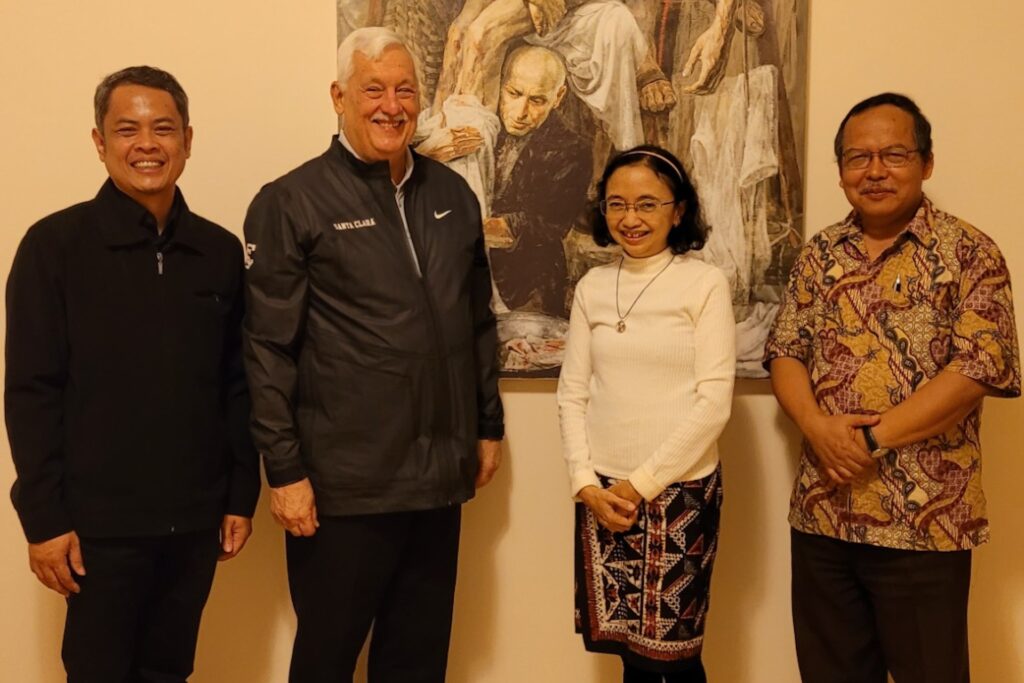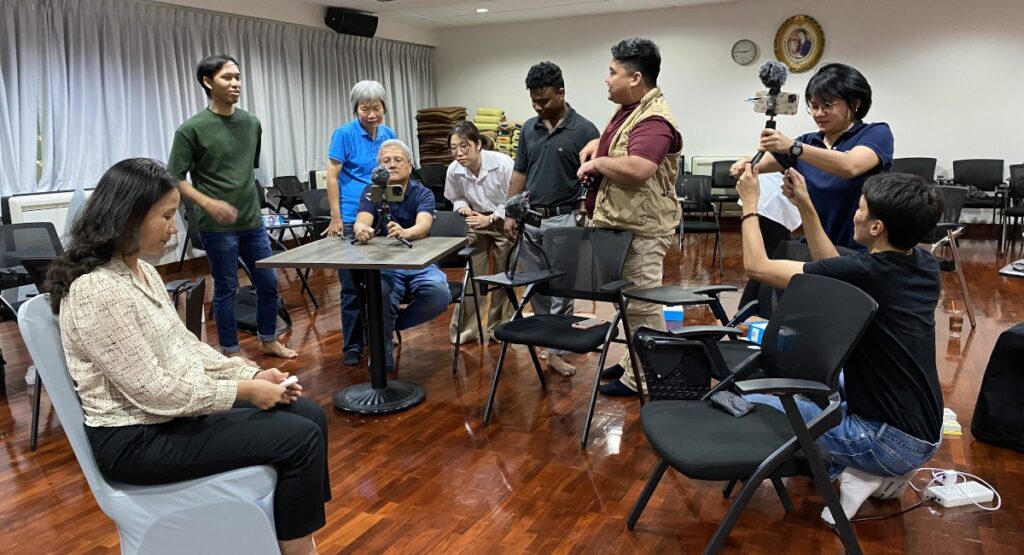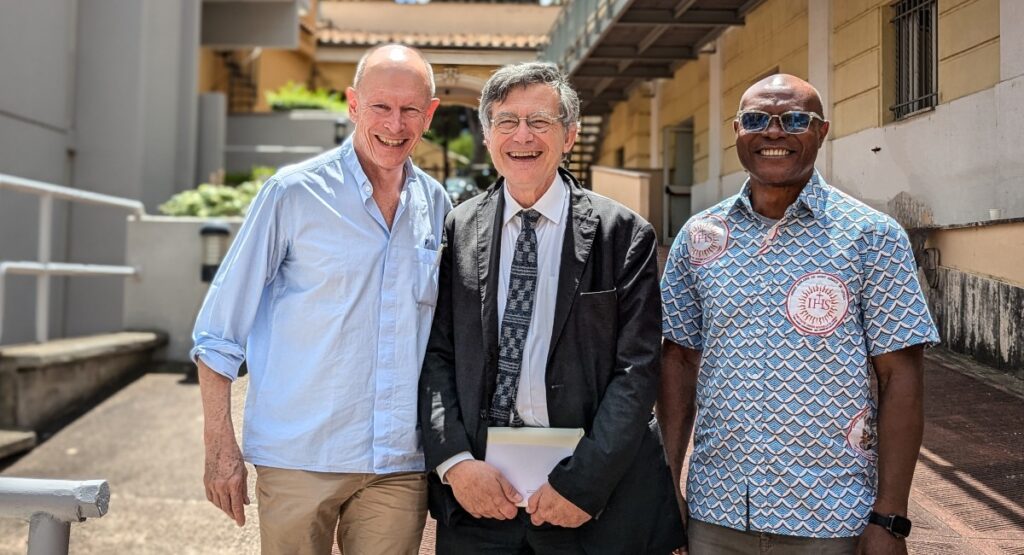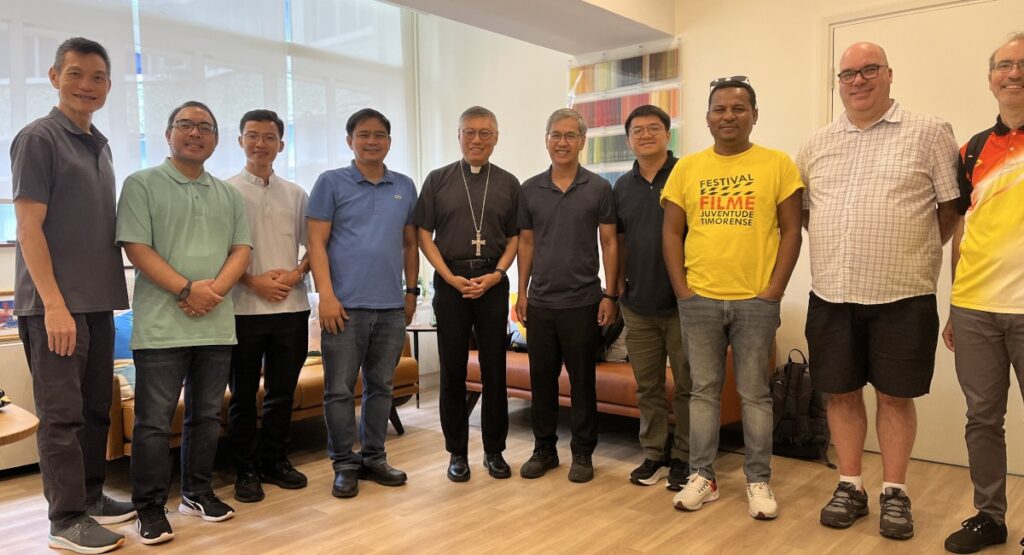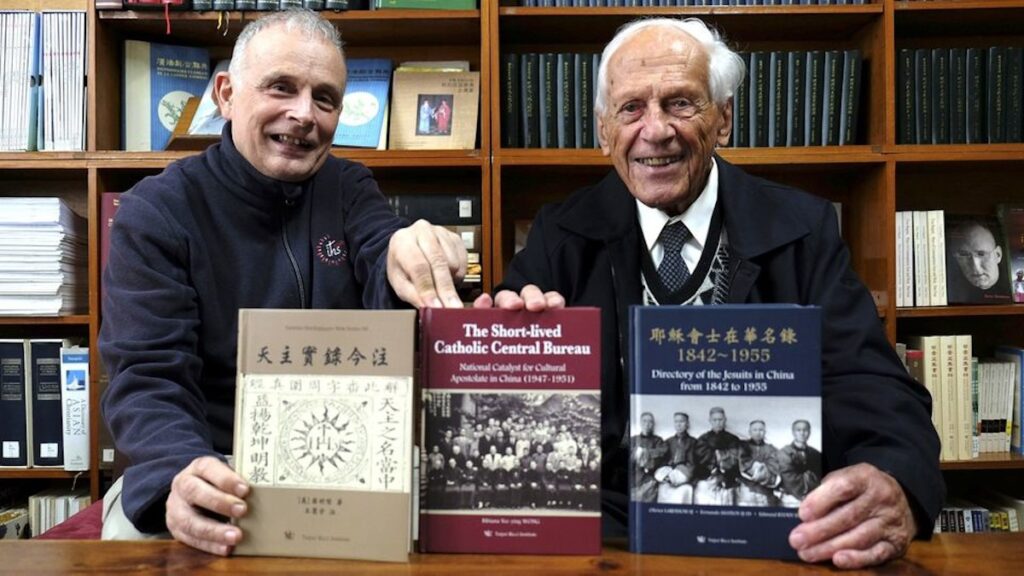From puppet shows to ‘tweet retreats’, Jesuit communications people around Asia are finding new and unique ways to get their message across.
A meeting of communications people from across the Jesuit Conference of Asia Pacific in Yogyakarta at the end of June was an opportunity to share successes and challenges facing the various Provinces and regions.
The Indonesian Jesuits hosted the meeting, and took the opportunity to present first hand the sizeable communications works in the Province. The group was taken on a tour of Studio Audio Visual Puskat, an audio visual production and training centre serving both Catholic and non-Catholic organisations, and Kanisius Publishing and Printing, which publishes books and magazines on religion and education for the Indonesian Catholic community.
Jesuit Refugee Service Indonesia made a presentation at the meeting. A highlight of its presentation was the viewing of Two Gardens, a film that explores peace-building issues and encourages acceptance and tolerance of foreigners and newcomers into communities.
The film was produced in conjunction with No Strings, a not-for-profit group that uses puppets in educational videos. Watch the film here.
The meeting was an opportunity for communications people to share some of their successes and plans for the future. These include:
- A Twitter-based retreat in Korea, which is based on the Spiritual Exercises, and has attracted more than 300 participants.
- Kuangchi Program Service in Taiwan is planning a third TV documentary on a historical Jesuit in China, to be shown in China.
- Puskat Audio Visual in Indonesia is planning a film on the country’s first native Catholic bishop, Mgr A Soegijapranata SJ.
- Jescom in the Philippines has been running a values campaign in the mainstream media, aimed at encouraging people to transcend their biases against minority groups such as Muslims.
- Casa de Produção Audiovisual (CPA) in Timor Leste produced over 30 programmes for local television last year.
- The Catholic Herald in Malaysia, edited by Fr Lawrence Andrew SJ, continues to be a Catholic voice in a challenging interfaith environment.
- Eureka Street in Australia celebrates its 20th anniversary this year, after successfully transitioning from a print publication to an email newsletter.
More broadly, the communicators discussed plans for working as a group on joint initiatives and the sharing of resources in training, public relations, and technical expertise. The group is also hoping to have input into the Jesuit formation planning, highlighting the importance of communications skills in the training of new Jesuits.


